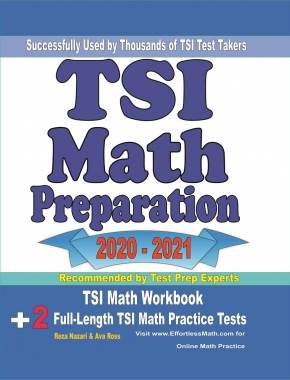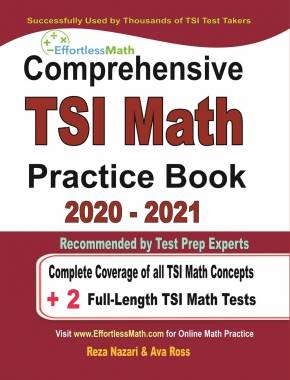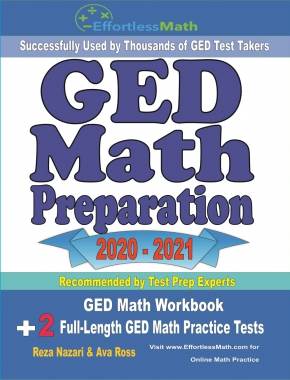How Can You Use Math for Calculating Your Winning?

Math is not just about numbers and equations—it can actually help you win! Whether you are betting on sports, playing poker, or entering a lottery, understanding some simple math concepts can give you an edge. In this article, we’ll explore how math can help you calculate your chances of winning and make smarter decisions.
Understanding Probability – The Key to Winning
Probability is the most important concept when it comes to winning. It tells you how likely something is to happen. Knowing the probability helps you decide if a bet is worth taking or not.
What is Probability?
Probability is simply how often something will happen out of all possible outcomes. We usually write it as a number between 0 and 1. Zero means something is impossible, and one means it will definitely happen.
For example:
- The probability of flipping a coin and getting heads is 0.5 (or 50%).
- The probability of rolling a six on a dice is 1/6 (about 16.67%).
The formula for probability is:
Probability = Number of favorable outcomes / Total number of outcomes
Why Probability Matters for Winning
Understanding probability helps you avoid bad bets and focus on those that give you a better chance of winning. For example:
- In poker, knowing the probability of getting a certain hand helps you decide whether to bet or fold.
- In lotteries, understanding how small your chances are might save you money.
- In sports betting, analyzing a team’s past performance helps you estimate their chances of winning.
- When using promotions like the Slotozen no deposit bonus, understanding probability can help you decide which games give you the highest chances of turning your free spins or bonus funds into real winnings.
The more you understand probability, the better your decisions will be.
Using Odds to Predict Your Winning Chances
You’ve probably heard people talk about “odds” when betting. Odds are closely related to probability, but they are shown differently. Understanding odds is important for calculating how much money you could win.
What Are Odds?
Odds show how likely something is to happen compared to how likely it is not to happen. There are three common types of odds:
- Fractional odds (like 5/1): Common in horse racing and sports betting.
- Decimal odds (like 6.00): Popular in Europe.
- American odds (like +500): Used in the U.S. for sports betting.
How to Convert Odds to Probability
To understand what odds mean, you can convert them into probability. Here’s how:
- Fractional odds (a/b): Probability = b / (a + b)
- Decimal odds: Probability = 1 / Decimal odds
For example, if the fractional odds are 5/1:
Probability = 1 / (5 + 1) = 1/6 ≈ 16.67%
By converting odds into probabilities, you can quickly see if a bet is in your favor or not.
The Power of Expected Value (EV)
Expected value is a simple math tool that shows you whether you’ll win or lose money over time if you keep making the same bet. Professional gamblers always think about EV before placing a bet.
What is Expected Value (EV)?
Expected value is the average amount you can expect to win or lose per bet if you make that same bet many times.
The formula for expected value is:
EV = (Probability of Winning × Amount Won) – (Probability of Losing × Amount Lost)
Example of Expected Value in Betting
Imagine you are betting $100 on a game where you have a 25% chance to win. If you win, you get $500. If you lose, you lose your $100.
Let’s calculate the EV:
- Probability of winning: 0.25
- Probability of losing: 0.75
- Amount won if you win: $500
- Amount lost if you lose: $100
EV = (0.25 × 500) – (0.75 × 100)
EV = 125 – 75
EV = 50
A positive EV of $50 means that, on average, you’ll earn $50 per bet if you keep playing. This is a good bet!
Why Expected Value is Important
Understanding EV helps you avoid bad bets and choose those that are more likely to make you money over time. Even if you don’t win every time, bets with positive EV will pay off in the long run.
Using Statistics to Improve Your Chances
Statistics is another powerful math tool that helps you analyze patterns and make better predictions. While probability tells you what could happen, statistics shows you what usually happens based on past data.
How Statistics Helps You Win
- In sports betting, you can analyze teams’ past performances to predict future outcomes.
- In casino games, you can track patterns and trends, such as which numbers come up most in roulette.
- In poker, you can track your opponents’ habits to predict their moves.
Example: Using Statistics in Sports Betting
Suppose you are betting on a soccer match. You research the teams and find:
- Team A has won 70% of their home games.
- Team B has only won 30% of their away games.
From this statistical pattern, you can estimate that Team A has a strong chance of winning. This research helps you make a smarter bet.
The Gambler’s Fallacy – A Mistake to Avoid
While math helps you win, it’s also important to avoid common mistakes. One of the biggest is the Gambler’s Fallacy—believing that past events affect future outcomes in random games.
What is the Gambler’s Fallacy?
The gambler’s fallacy is when you think something is “due” to happen just because it hasn’t happened for a while. For example:
- You flip a coin five times, and it lands on heads every time. You think, “Tails must be next!” But the probability is still 50/50, no matter what happened before.
How to Avoid It
Always remember that in random games like dice, roulette, or coin flips, each result is independent. Understanding probability correctly will help you avoid this trap.
Using Math to Manage Your Bankroll
Another way math helps you win is by managing your money wisely. Professional gamblers use math to decide how much to bet and when to stop. Without a clear plan, even the luckiest players can lose everything quickly. Bankroll management is about controlling your spending and making sure you can keep playing, even during losing streaks. It uses simple math strategies to help you stay in the game longer and increase your chances of success over time.
The Importance of Bankroll Management
Bankroll management means controlling how much money you risk. It helps you make smarter decisions and avoid losing large amounts of money at once. A good rule is to only bet a small percentage of your total money on each bet—usually between 1% to 5%. This approach protects you from big losses and helps you stay in the game longer.
For example, if you bet only 2% of your bankroll each time, you can survive many losses in a row without running out of money. Even during a losing streak, your bets will get smaller as your bankroll decreases, which slows down your losses. When you start winning again, your bets will increase along with your bankroll.
This simple math-based strategy helps you:
- Protect your money: You avoid losing everything in one bad streak.
- Stay consistent: You don’t panic and make big bets to recover losses.
- Play longer: You stay in the game and give yourself more chances to win.
Example of Bankroll Management
If you have $1,000 to bet, and you decide to bet 2% ($20) per game:
- After the first loss, your bankroll is $980, so your next bet is 2% of $980, which is $19.60.
- If you keep losing, your bets get smaller, so you don’t lose your bankroll quickly.
- If you start winning, your bets increase along with your bankroll, helping you earn more.
This simple math strategy keeps you in the game longer and protects you from losing everything. Over time, if you make smart bets with good odds, your bankroll will grow steadily without big risks.
Conclusion
Math isn’t just about numbers—it’s about making smarter decisions and increasing your chances of success. Whether you’re betting on sports, playing poker, or analyzing statistics, math gives you the tools to understand risks, spot opportunities, and avoid common mistakes.
By learning about probability, you can judge how likely you are to win. Understanding odds helps you see whether a bet is worth taking. Knowing about expected value lets you choose bets that are profitable over time. Using statistics, you can find patterns and trends to make better predictions. And with proper bankroll management, you can protect your money and play longer, giving yourself more chances to win.
The best part? You don’t need to be a math genius to apply these ideas. With a little knowledge and practice, you can use math to improve your results and enjoy more success.
Related to This Article
More math articles
- How to Find Composite Numbers?
- Full-Length CLEP College Mathematics Practice Test
- FREE 8th Grade Common Core Math Practice Test
- Full-Length 7th Grade IAR Math Practice Test-Answers and Explanations
- 8th Grade M-STEP Math Worksheets: FREE & Printable
- 5 Skills You Need to Study Mathematics in College
- How to Fill in the Gaps: Finding Missing Angles of Quadrilaterals
- How to Graph Functions
- 4th Grade OST Math Worksheets: FREE & Printable
- How to Solve Word Problems of Budgeting a Weekly Allowance


















What people say about "How Can You Use Math for Calculating Your Winning? - Effortless Math: We Help Students Learn to LOVE Mathematics"?
No one replied yet.